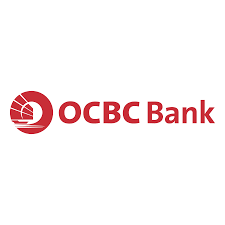Decentralised cryptocurrency protocol stablecoin Frax Finance has launched a new stablecoin, frxUSD, which will run on BlackRock's USD institutional Digital Liquidity Fund (BUIDL).
With the partnership, Frax Finance seeks to offer a secure, transparent and verifiable backing mechanism to further connect traditional finance with decentralised systems.
Stablecoin frxUSD is a rebranded evolution of Frax's flagship stablecoin FRAX, which aims to offer direct fiat redemption capabilities and greater compliance with US financial systems.
Launched by BlackRock in March 2024, BUIDL is the investor’s first tokeniszed fund on the Ethereum network and forms part of its broader digital asset strategy.
As part of the collaboration, BUIDL will become a custodian asset for the minting and redemption of frxUSD.
The stablecoin will be backed by assets held in BlackRock's BUIDL to ensure transparency and audibility on the chain, with frxUSD offering on and off-ramping capabilities of fiat through Blackrock's BUIDL infrastructure, Frax Finance said in a statement.
BUIDL is designed to offer qualified investors the opportunity to earn US dollar returns by subscribing through Securitize Markets, a digital marketplace operated by real-world asset tokenisation platform Securitize that provides solutions for asset managers, Web3 companies, advisors and investors.
On Securitize Markets, investors can access and invest in tokenised private market funds. This platform enables the trading of digital securities, providing liquidity and wider access to alternative investments.
BUIDL currently invests in cash, US treasury bills, and repurchase agreements, aiming to maintain a stable value of $1 per token. Investors receive daily accrued dividends directly to their wallets as new tokens each month.
Carlos Domingo, co-founder and chief executive officer of Securitize, emphasised how tokenised real-world assets provide a bridge between traditional finance and decentralised finance.
"This collaboration exemplifies the next stage in financial evolution, demonstrating how traditional and decentralised systems can work together to redefine asset management strategies,” he said.
Latest News
-
Gemini to cut quarter of workforce and exit UK, EU and Australia as crypto slump forces retrenchment
-
Bank ABC’s mobile-only ila bank migrates to core banking platform
-
Visa launches platform to accelerate small business growth in US
-
NatWest to expand Accelerator programme to 50,000 members in 2026
-
BBVA joins European stablecoin coalition
-
eToro partners with Amundi to launch equity portfolio with exposure to ‘megatrends’
Creating value together: Strategic partnerships in the age of GCCs
As Global Capability Centres reshape the financial services landscape, one question stands out: how do leading banks balance in-house innovation with strategic partnerships to drive real transformation?
Data trust in the AI era: Building customer confidence through responsible banking
In the second episode of FStech’s three-part video podcast series sponsored by HCLTech, Sudip Lahiri, Executive Vice President & Head of Financial Services for Europe & UKI at HCLTech examines the critical relationship between data trust, transparency, and responsible AI implementation in financial services.
Banking's GenAI evolution: Beyond the hype, building the future
In the first episode of a three-part video podcast series sponsored by HCLTech, Sudip Lahiri, Executive Vice President & Head of Financial Services for Europe & UKI at HCLTech explores how financial institutions can navigate the transformative potential of Generative AI while building lasting foundations for innovation.
Beyond compliance: Building unshakeable operational resilience in financial services
In today's rapidly evolving financial landscape, operational resilience has become a critical focus for institutions worldwide. As regulatory requirements grow more complex and cyber threats, particularly ransomware, become increasingly sophisticated, financial services providers must adapt and strengthen their defences. The intersection of compliance, technology, and security presents both challenges and opportunities.
© 2019 Perspective Publishing Privacy & Cookies














Recent Stories